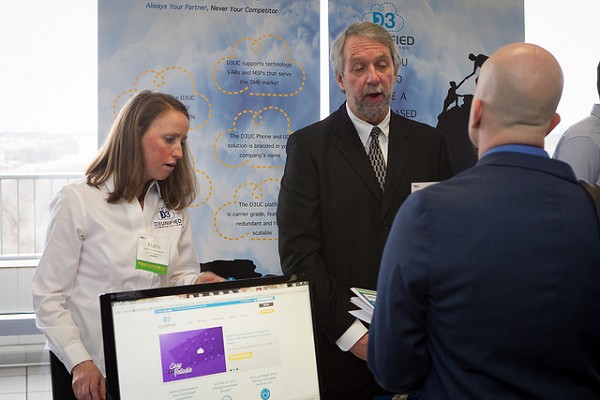Startup and App Roundup: Vognition, IntelliQuit, D3UC, Paydunk, Amigdala

Vognition: Vognition, the NJIT Enterprise Development Center (Newark) startup that recently won recognition at the New Jersey Tech Council’s Internet of Things Conference, had gone to the Consumer Electronics Show in January, where it was featured in the Nexia Home Intelligence booth. Nexia, a brand of Ingersoll Rand, is a pioneer in home automation. At the show, Nexia demonstrated a natural language voice-control pilot featuring Vognition to show how users could speak to their internet-connected devices to control their homes from anywhere in the world via the Nexia app. According to Michael Liguori, founder and CEO of Vognition, the Nexia solution featured Vognition for voice controls for lights, locks and thermostats. Liguori told us that the “The demonstrations … were well received. We saw a lot of interest from potential customers within the home automation space, and we are now in discussions with some of those companies.” The startup also connected with some companies that “are not yet using voice controls for their IoT devices, but were looking for innovative new technologies that they may want to use in the near future.”

IntelliQuit, Mahwah-based IntelliQuit, which says it is the world’s first personal breathalyzer for smokers, won first place in the American Heart Association NYC’s Health Sciences Innovation-Investment Forum Challenge in New York City on April 22. Over 60 companies had applied to compete in the Challenge, of which four were selected to appear on stage at the final event. The IntelliQuit device is smaller and weighs less than a butane lighter. It informs smokers of their biochemical tobacco consumption via expired breath analysis. Linked via Bluetooth to the smoker’s smartphone, IntelliQuit provides smokers with interactive behavioral biofeedback, data-driven coaching and treatment plans to help smokers quit the way they started: one puff, and one breath, at a time. IntelliQuit recently received some angel funding, which enabled it to buy a 3D printer and create prototypes of its device. The company is also conducting a crowdfunding campaign on Medstartr.

D3UC: D3 United Communications, another NJIT-EDC startup, won the MSPAlliance MSPWorld Cup Award at the MSPWorld Conference in Orlando, Florida, in April. This award recognizes technology-enabling companies that have demonstrated consistent efforts to advance the cause of managed service providers across the globe through cutting-edge technologies and solutions. Chuck Daniels, founder and CEO of D3UC, said that his company was “thrilled to be recognized by the MSPAlliance and proud to receive their MVP award.” He explained that D3UC created a white-label, cloud-based phone and unified communications service exclusively for managed service providers that serve small to medium-sized businesses. “Our platform helps these companies compete more effectively against their larger competitors” while generating substantial recurring monthly revenues, he said.

Paydunk: Pine Brook-based startup Paydunk officially launched its payment app at New York Tech Day, in April. The app is designed to make checking out on any e-commerce site a simple, secure and familiar process. Paydunk differentiates itself by encrypting all of the user’s personal and financial information and storing it on the user’s phone. This eliminates the need to create online accounts or to give information to a third party that stores it on cloud servers. By keeping the information on the device, Paydunk eliminates the substantial fraud risk that can exist when online sites or databases are affected by cybercrime, the founders say. The user does not even create a Paydunk account, as Paydunk identifies each person only by his or her mobile phone number. The company also touts its simple setup and design. Paydunk was founded in 2014 by Mike Marenick and Robert McHugh.
MANIACO Mobile: MANIACO Mobile (Newark) has launched its first iOS application, called Amigdala. This app tracks crime data and gives users a color rating based on the severity of crime in a specific geographic location. The ratings are blue (minimal crime), green (low crime), yellow (moderate), orange (elevated) and dark red (severe). The app collects data from police departments and notifies users of local crimes just hours after they have been reported to the police.
Founder and CEO Larry Carmant explained that he built the app because there was no product on the market that provided real-time crime info on smartphones. If the best indication of future crime is past crime, then a product that provides recent crime information is a very valuable tool, he said. “Are you buying a house, searching for a business location, searching for a daycare or nursing home? These are all cases where you should be aware of nearby crimes. Are you parking your car in an unfamiliar neighborhood?” You can easily check if there has been any recent thefts. By using this app, for example, you could tell if there has been a series of burglaries in a particular neighborhood.

